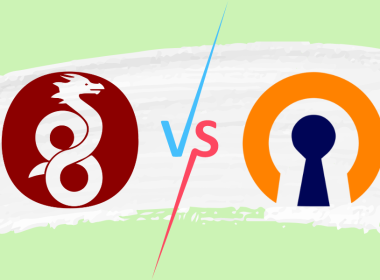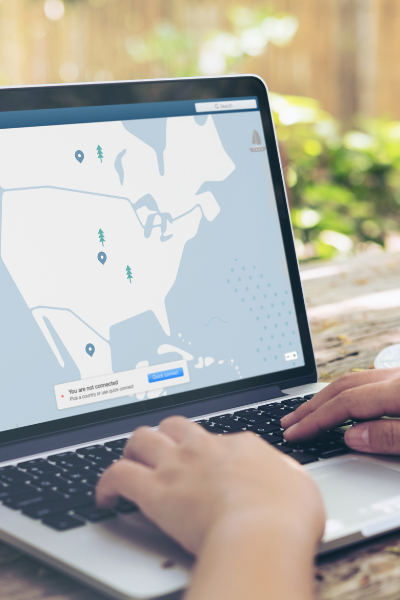Private Internet Access Review – Pros and Cons
Private Internet Access Review | At a Glance: Based in the US Strict ‘No Logging’ Policy Industry Standard Encryption and Tunneling Protocols High Download and upload Speeds Torrenting Varied Device Compatibility Prices start off at $3.49 per month when you sign on to the Two Year Plan The Pros Here are the things we absolutely […]
Private Internet Access Review | At a Glance:
- Based in the US
- Strict ‘No Logging’ Policy
- Industry Standard Encryption and Tunneling Protocols
- High Download and upload Speeds
- Torrenting
- Varied Device Compatibility
- Prices start off at $3.49 per month when you sign on to the Two Year Plan
The Pros
Here are the things we absolutely love about PIA, in our
Strict ‘No Logging’ Policy
A ‘No Logging’ policy obligates a VPN service to refrain from tracking or storing any user traffic data. This includes your IP address, the URLs of websites you visit, session timestamps, metadata…etc. PIA sticks firmly to this policy and so even if your Internet Service Provider requests access to logs of IP addresses, there will be nothing to hand over.
This doesn’t mean that PIA doesn’t collect any data at all. As specified on their website, they do retain the following:
- Your email address
- Billing information
- Cookies (temporarily)
High Speeds
You can expect speed reductions when using any VPN service. This is because VPNs have to encrypt your data before transmitting it. With some VPNs, the percentage of speed loss is so bad that you can hardly do anything more than basic browsing.
Fortunately, this is not the case with PIA. When connected to local servers, you can expect a maximum speed reduction of 19% or so. That means depending on how fast your default speed is, you’ll still be able to play online games and stream movies without any lagging whatsoever. Of course, you can expect the speed to reduce further when you connect to servers that are located further away from you. For instance, if you live in Europe and connect to a US server, you can more or less expect a 23% loss.
So while PIA isn’t quite as fast as services like
Strong Encryption
PIA offers four different encryption settings to choose from:
- Default Recommend Protection – AES-128 encryption standard and SHA1 data authentication
- Maximum Protection – AES-256 encryption standard and SHA256 data authentication
- All Speed No Safety – No encryption or data authentication
- Risky Business – AES-128 encryption standard and no data authentication
With the default setting, the VPN will use 128-bit encryption to mask your traffic data. While this is acceptable, it’s not the most secure option. If you want the very best in terms of encryption, we suggest configuring your connection to use the ‘Maximum Protection’ setting. This uses the AES-256 standard – the same one that’s used by both the FBI and CIA and the biggest financial institutions in the world.
However, it should be noted that 256-bit encryption can noticeably slow down your connection as it uses up more data. Hence, you have to decide what is more important to you: speed or security. Let’s move forward and see the other pros of PIA from this
Industry-Standard Tunneling Protocols
Tunneling protocols are used by VPNs to transmit data undetected through public networks. The default protocol offered by PIA is Open VPN, which comes highly recommended by cybersecurity experts from all over the world. It uses encryption, authentication, and certification methods from the OpenSSL library to form an impenetrable armor around your traffic data.
However, there are two main drawbacks to using OpenVPN. Firstly, it’s not compatible with iOS devices and older computers. Secondly, it’s not very fast when compared to other tunneling protocols. Luckily, PIA provides alternative options as well: PPTP, IPsec, SOCKS5. While being faster and compatible with iOS devices, they are less secure than OpenVPN.
Torrenting
If you torrent quite often, then PIA is a good choice to go with. Not only do they permit torrenting, but they also don’t put any restrictions on it monitor the connection.
Excellent Reputation
At the start of this
Device Compatibility
PIA is compatible with a variety of devices and platforms including the most popular operating systems on computers and phones. In addition, it also offers browser extensions for Opera, Chrome, and Firefox. It is possible to connect PIA to a router via OpenVPN (the default tunneling protocol), however, it does require some technical expertise. In addition, once you’ve set up a router connection, you can access PIA using your smart devices and even gaming consoles afterward.
The Cons
Here’s what we didn’t like about PIA in our
The Jurisdiction in the US
If we were trying to start a VPN company of our own, the US is probably the last country we’d choose to base it in. It is known for its strict data retention laws and being strongly anti-piracy. We all know that the US collects data on its citizens and anyone else they can, and are serious about cracking down on torrenting and P2P activity.
Hence, while PIA is able to stick to a ‘No Logging’ policy at the moment, things may very well change in the future. The US government could choose to pass stricter laws that could force the company to abandon that policy and start hoarding data about its users.
Not the Most Ideal Choice for Netflix Users
PIA isn’t the greatest at unblocking Netflix. Only every one out of six Netflix-optimized servers actually works, which isn’t at all ideal. If your primary reason for using a VPN is to unblock Netflix and other streaming services, then we highly recommend that you consider other options.
Limited Customer Support
While PIA does offer Live Chat, it’s only for paying customers. Hence, if you want to ask a pre-sales question, you’ll have to send them an e-mail and wait for an answer. Despite claiming that the Live Chat is 24/7, it can sometimes take several hours to receive a response. However, when operators do reply to you, it’s usually very detailed and helpful. In addition, they do have a very informative FAQ section on their website, which offers answers to common technical issues.
Private Internet Access Review | In Summary
Despite being much cheaper, PIA does enough to keep up with more expensive top-tier VPNs. First of all, it’s one of the most secure VPNs around with its strict ‘No Logging’ policy, and use of AES-256 Encryption and OpenVPN tunneling protocol to protect user data. Furthermore, it offers faster-than-average speeds, unrestricted torrenting, and support for a multitude of devices.
The only drawbacks are that it’s under US jurisdiction and the fact that it offers limited customer support.


